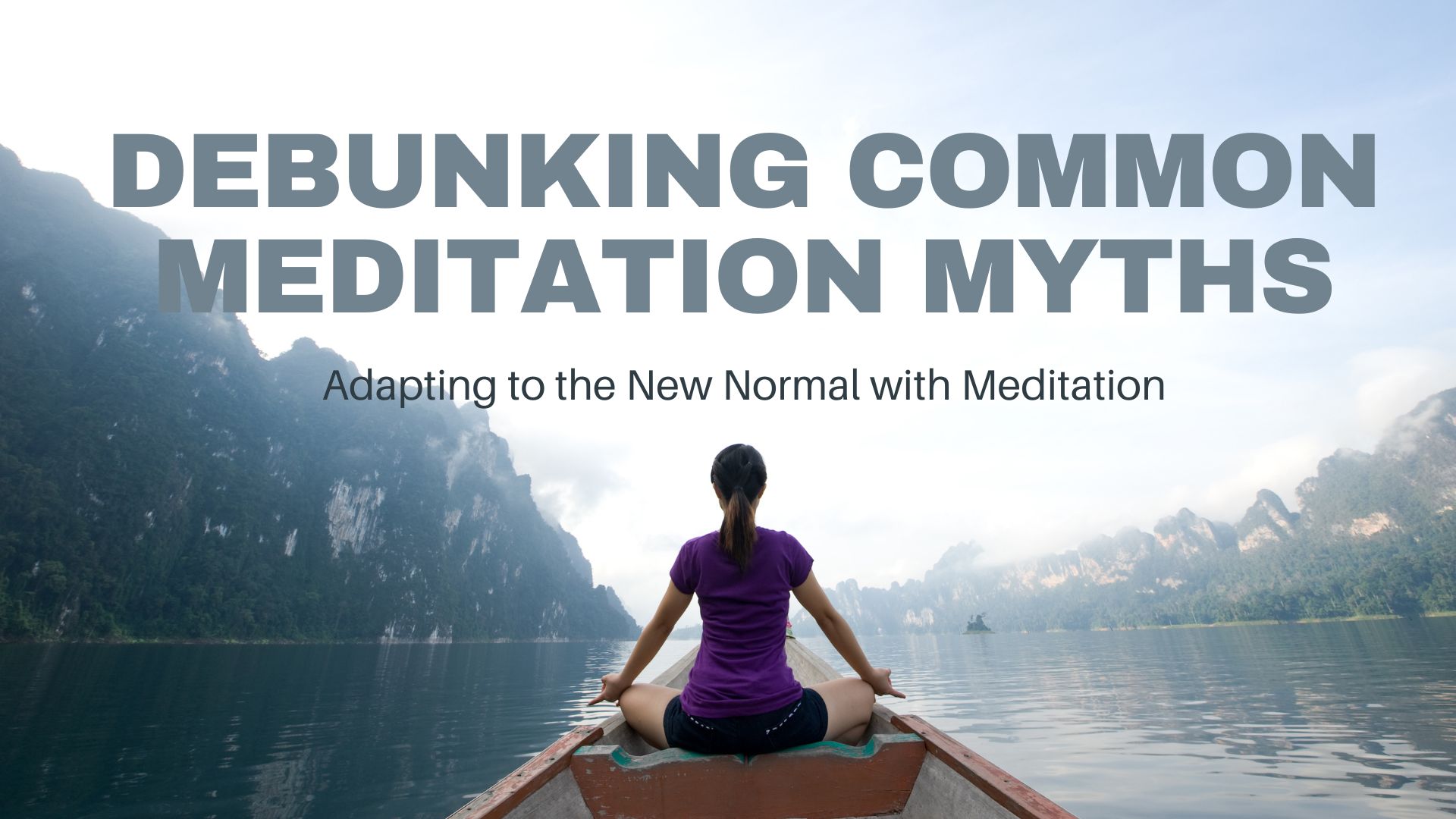For thousands of years, people have been meditating, and it is often associated with Eastern religions such as Buddhism and Hinduism. However, in recent years, meditation has become increasingly popular in the West, with people from all walks of life embracing the practice. Although more and more people like it, there are still a lot of misunderstandings and myths surrounding meditation, and one of the most common question is meditation a sin. In this blog post, we will explore this question in depth, debunking common myths and misconceptions and shedding light on the true nature of meditation.
You May Also Like:
How to Solve Your Problems Through Meditation
Is Meditation a Sin?
No, meditation is not a sin. Meditation is a practice that involves training the mind to achieve a state of calm and clarity. It is a tool used to reduce stress, improve concentration, and enhance overall well-being.
While some religions may incorporate meditation as part of their spiritual practices, it is not inherently linked to sin or any specific religious belief.
In fact, many individuals from various cultural and religious backgrounds practice meditation for its secular benefits.
Ultimately, whether or not meditation is considered a sin depends on one’s personal beliefs and the religious or cultural context in which it is practiced.
Section 1: Understanding Meditation

What is Meditation?
Meditation is a technique that helps you train your mind to concentrate and feel peaceful and relaxed. It is often used to reduce stress, anxiety, and depression, as well as to improve mental clarity, emotional balance, and overall well-being.
Meditation can take many different forms, including mindfulness meditation, mantra meditation, and visualization meditation. By regularly practicing meditation, individuals can develop greater awareness of their thoughts and emotions, and learn to better manage them.
The Origins of Meditation
- For thousands of years, people have been meditating, with its origins rooted in Eastern religions such as Buddhism and Hinduism.
- However, meditation is not limited to these religions, and it has been practiced in many different cultures throughout history.
Is Meditation Mentioned in the Bible?
For thousands of years, people have been meditating and is commonly associated with Eastern religions. However, many people wonder if meditation is mentioned in the Bible. Here is a brief exploration of the topic:
Meditation in the Old Testament
- The word “meditate” is used frequently in the Old Testament.
- It comes from the Hebrew word “hagah,” which means “to moan, growl, utter, muse, or ponder.”
- The concept of meditation in the Old Testament involves deep reflection and contemplation on God’s word and his character.
- For example, Psalm 1:2 says, “But his delight is in the law of the LORD, and on his law he meditates day and night.”
Reference: Florida Times Union, Florida Times Union, 27 Jan. 2021, p. A-8.
Meditation in the New Testament
- The New Testament does not use the word “meditation” in the same way as the Old Testament.
- However, the concept of meditation is still present.
- In Philippians 4:8, the apostle Paul says, “Finally, brothers, whatever is true, whatever is honorable, whatever is just, whatever is pure, whatever is lovely, whatever is commendable, if there is any excellence, if there is anything worthy of praise, think about these things.”
Reference: Walker, Andrew. “A Forgotten Protestant Pluralist.” American Conservative, vol. 19, no. 6, American Conservative LLC, Nov. 2020, p. 10.
- This verse encourages believers to focus their thoughts on positive and uplifting things.
Is meditation dangerous?
For thousands of years, people have practiced meditation to achieve a state of calmness, alleviate stress, and induce relaxation. However, there is some debate over whether meditation can be dangerous.While meditation itself is not dangerous, there are some potential risks that individuals should be aware of.
For example, some people may experience uncomfortable physical sensations or emotions during meditation, which can be difficult to handle.
Additionally, individuals with a history of mental health issues may find that meditation exacerbates their symptoms. It is important to note that these risks are relatively rare, and most people find that meditation is a safe and beneficial practice.As with any new activity, it is always a good idea to talk to a healthcare professional before starting a meditation practice, especially if you have any underlying health conditions.
Section 2: Debunking Common Myths and Misconceptions

Myth 1: Meditation is a Religious Practice
- While meditation is often associated with Eastern religions such as Buddhism and Hinduism, it is not a religious practice in and of itself.
- Meditation can be practiced by people of all religions, or no religion at all, and it is not tied to any specific religious beliefs or practices.
Myth 2: Meditation is a form of Hypnosis
- While both meditation and hypnosis involve altered states of consciousness, they are fundamentally different practices.
- Hypnosis involves inducing a trance-like state to achieve a specific outcome, while meditation is a practice of cultivating mindfulness and awareness.
Myth 3: Meditation is a New Age Fad
- While meditation has become increasingly popular in the West in recent years, it is far from a new-age fad.
- For thousands of years, people have been meditating, and has been scientifically proven to have numerous physical and mental health benefits.
Section 3: The Benefits of Meditation

Physical Health Benefits
- Meditation has been shown to reduce stress, lower blood pressure, improve immune function, and reduce inflammation.
- Regular meditation practice has also been linked to less chance of developing heart problems.
Mental Health Benefits
- Meditation has been shown to reduce symptoms of anxiety, depression, and other mental health conditions.
- It can also improve emotional regulation, increase feelings of happiness and well-being, and promote a sense of inner peace and calm.
Spiritual Benefits
- While meditation is not a religious practice, it can have spiritual benefits for those who choose to incorporate it into their spiritual practice.
- Meditation can deepen one’s connection to the divine, increase feelings of gratitude and compassion, and promote a sense of interconnectedness with all beings.
Section 4: Meditation and Religion

Meditation in Eastern Religions
- Meditation is an integral part of many Eastern religions, including Buddhism and Hinduism.
- In these religions, meditation is often practiced as a means of attaining spiritual enlightenment or liberation from suffering.
Meditation in Western Religions
- While meditation is not as prominent in Western religions such as Christianity and Islam, there are many examples of meditation practices within these traditions.
- For example, Christian contemplative prayer and Islamic Sufi meditation are both forms of meditation that have been practiced for centuries within their respective religions.
Meditation and Personal Beliefs
- Ultimately, the decision to incorporate meditation into one’s personal beliefs and spiritual practice is a personal one.
- While some religions may have specific guidelines or beliefs about meditation, it is ultimately up to the individual to decide whether or not meditation aligns with their personal beliefs and values.
Section 5: Addressing Concerns about Meditation

Concern 1: Meditation is a form of Idolatry
- Some people may view meditation as a form of idolatry, or worship of false gods.
- However, meditation does not involve worshiping any particular deity or belief system, and it is a practice of cultivating mindfulness and inner awareness.
Concern 2: Meditation is Dangerous or Leads to Possession
- Some people may have concerns that meditation is dangerous or can lead to possession by evil spirits or entities.
- However, there is no evidence to support these claims, and meditation has been shown to have numerous physical and mental health benefits.
Concern 3: Meditation is a Waste of Time
- Some people may view meditation as a waste of time, or as something that is only useful for monks or spiritual seekers.
- However, meditation can be beneficial for anyone, regardless of their religious or spiritual beliefs, and It can aid in lowering stress, enhancing mental health, and increase feelings of well-being.
Conclusion:
Throughout the beginning of time, people have been practising meditation it has roots in Eastern religions, but it is not limited to these religions. Meditation is not a religious practice in and of itself, and it can be practiced by individuals of all religions or none at all. There are many different types of meditation, and the benefits of regular practice are numerous, including physical health benefits, mental health benefits, and spiritual benefits. Despite its numerous benefits, there are still some myths and misconceptions surrounding meditation, such as whether or not it is a sin, whether or not it is a religious practice, and whether or not it is a form of hypnosis. It is important to understand these myths and misconceptions and to be aware of the potential risks associated with meditation. Overall, meditation is a safe and beneficial practice that can help individuals achieve a state of relaxation, inner peace, and spiritual connection.

